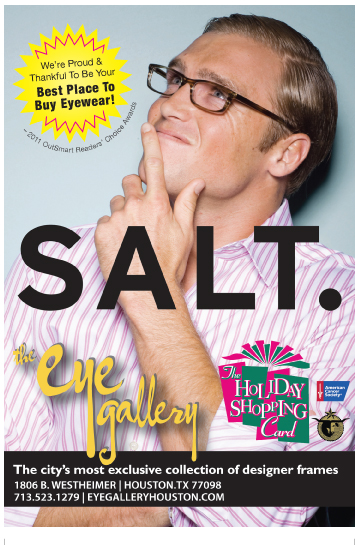For those about to read: Ready Player One
By C. Harris Stephens
With steadfast faith in Wikipedia’s posterity, and the exultation of 80’s pop culture, semi-local Ernest Cline commands his true-fans to drop that PS3 controller and get to reading a book. His book. About gaming for an Easter-Egg-Will left behind by an isolated old rich man named Halliday. If only his publisher had released Ready Player One when Anonymous took down the Sony Network, sales records could’ve been broken.
Such a retreat to fantasy about fantasy in the lack of habitual fantasy would, doubtlessly, conjure apocalyptic disapproval by the hacker group. But that’s how fatalism sets up its gamut, and also how Ernest Cline props hyperbolized contemporary suffering as a backdrop for weak character construction: conflagrate a reactionism that fosters a pessimistic and apocalyptic worldview in order to insert its own optimism. Enter protagonist Wade Owen Watts.
The story attempts to answer the question Ernest Cline proposed in his creative process: “What if Willy Wonka was a video game designer?” The poor orphaned boy named Wade-a stand in for Willy Wonka’s Charlie Bucket-lives with his drug-addicted aunt along with many other orphans his aunt took on in order to horde from them their monthly food ration vouchers. In a media eclipsing announcement that marks the beginning of a new cultural epoch, the richest man in the world, Halliday – designer of the virtual escape world OASIS – declares his estate open for grabs to the first person that can find three keys hidden in a labyrinth concealed within the game. The trope Cline borrows from the gaming world is the Easter Egg – a hidden room possessing power ups, bonuses, extra lives, etc.
Wade must find the egg, and because he’s our protagonist, he most certainly exhibits the aptitude for completing the quest. The Easter Egg here is to sign one’s own name as sole benefactor of a multibillionaire’s will after finding the three keys to the three gates that lead to his vaulted will. But can Wade transform his aptitude into the actual ability to complete the quest both online and offline?
In short, this is a social mobility bildungsroman; a coming of age as symbolized by a movement from poverty to wealth. A world dominated by poverty, famine and oppression must have a release valve, an escape. The parable of the story rests in differing senses of duty within a ‘real’ and a not so real virtual world; that one shouldn’t get lost in un-reality. Yet, this escape possesses all the dangers and drawbacks of reality, minus physical death of course.
In such a pertinent and mystifying possibility, Cline’s imagination brought him only to define reality as physically vulnerable and virtuality as physically invulnerable? Did not the preference of one redefine the other, or somehow question the overall construct of both? The escape system of OASIS is as narrowly wrought as its character development, as evident in the love story that serves as the story’s dénouement.
The escape system, OASIS, is a program comparable to Second Life; a world where one may perform a mock-up of daily life; an interactive virtual world, where flesh is replaced by avatar and reality is modified towards fantasy. OASIS’ popularity makes it synonymous with the Internet. Yet, like all technological inventions, OASIS doesn’t solve problems inherent in the human condition; it only extends them into another format.
The problems of 2024 reflect the outcome of a fossil fuel depletion and subsequent energy crisis: corporate rights triumph over personal liberty; disparity in wealth leads to class warfare and in-fighting among the lower classes. In the OASIS, as designed by Halliday, the concept of money and the consequences of severe class division follow people from the real world into the fantasy.
Cline never questions the ideological aspects of the OASIS or its founder. His characters float on surface level drives of banal greed and banal love. They can only process one personal interaction at a time. Complexity here missed roll call completely. Ernest Cline, in his Boing Boing interview, stated a prequel was in the works. Hopefully, Cline may look over his shoulder to Jason Rohrer, who’s recent Chain World invention touches upon many of the subjects Cline overlooked while immersing himself too much in the geek-world aspects of “Ready Player One.” To mention the ills of the world without proposing an ideological change in a science fiction novel begs the question “why sci-fi?” This novel reads more like banal hipster romance, if only publishers would make that a genre.
Like so many Protagonists in dystopic narratives, Wade—Z or Parzival as he is known in avatar form – possesses attributes that serve as the basis of the system rejected. Our contemporary self-made-man suggests that if you are poor, then there’s a self-possessed reason for it, not a systemic one. By Wade’s only transformation coming through the acquisition of wealth, Cline becomes a proponent of the systemic problem. There are similar ideological failings in contemporary science fiction.
The 2024 version of I Am Legend, for instance, creates a world in which human kind mutates into zombie-vampires following infection by an endemic virus. The subtext of the 1971 adaptation Omega Man, and Richard Matheson’s 1954 novel, is the acceptance of change. In the contemporary version, killing the new race, zombie-vampires, saves the old race, humans. To remain separate and unequal serves as the films closing statement.
Just when difference trumps racial purity as the norm in our zeitgeist, the old ideology appears in how we structure narrative in order to remind us that things are not as so hopefully imagined. Cline applies the same logic in Ready Player One: the only solution to poverty is to get rich. You must be the perfect prototype, or else there’s nothing but ruin. An escape to wealth cannot be a mass exodus; a footnote Cline has sorely forgotten.
Aside from the ideological holes of the novel, it’s a piece of escapist literature. And for that, it is enjoyable. It’s a quick read where the story grabs you into a familiar narrative and drops you off exactly where you boarded. But to compare this to a Tolkien novel, or Snow Crash, or any other substantial piece of science fiction literature seems to be the work of a publisher’s payroll, not a mildly attentive reader.











